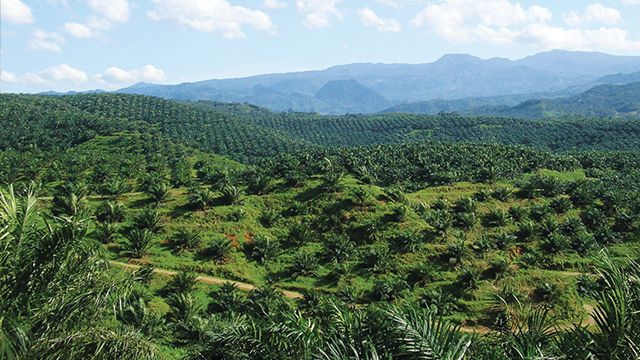Jakarta (Greeners) – To increase oil palm competitiveness, Indonesia implement Indonesia Sustainable Palm Oil (ISPO) as minimum standard for the industry, said an official in Jakarta, on Thursday (07/06/2018).
“ISPO has been considered realistically and properly. We believe it has been thoroughly considered and we understand expectations from other parties, but we need to explain ISPO criteria clearly,” said Noer Adi Wardojo, head of Environmental and Forestry Standardization Center adding that ISPO is Indonesia’s choice to implement sustainable palm oil industry.
ISPO is established in 2009 to ensure oil palm industry comply to all agriculture standards. “Oil palm industry is make up from large plantation, processing [industry], and consumers with multiple interests, [it is] hard to take the right policy. Hence, ISPO certification as sustainable management instrument is government’s focus in oil palm industry,” said Diah Y. Suradiredja, program director of Kehati Foundation and ISPO Strengthening Team.
READ ALSO: Indonesian Scientists Develop Bioethanol from Palm Oil Waste
Based on Kehati data, oil palm plantation covers 12.3 million hectares with 1,600 plantations belong to private sector. Indonesia owns 40 oil palm processing factories and 850 mills meanwhile Malaysia owns 52 factories and 445 mills.
“During ISPO certification, only 16.6 percent out of total plantations receive certificates, which covers 346 out of 1500 unit of oil palm business people,” said Suradiredja.
Furthermore, she said that out of 4.7 million hectares of people’s oil palm plantation in 2017, only 3,631 hectares are certified ISPO or 0.08 percent out the total. Low numbers of certified people’s plantation, she said, was due to gap on administrative information to local plantations about ISPO certification.
“[Indonesia] has not achieved target of ISPO certification because of lack of stakeholder involvement to acknowledgment from international market, and main points to encourage strengthening ISPO,” she said.
Furthermore, she said that ISPO can be strengthened through certification improvement to be more independent, transparent, comprehensive and coordinated, increasing revenues in international market, and inclusive ISPO implementation, to engage stakeholders other than ministry of agriculture.
READ ALSO: Law Expert: Oil Palm Industry Management Prone To Corruption
Furthermore, CEO WWF Indonesia, Rizal Malik, said that if Indonesia is eager for oil palm industry to achieve gold standard then the standard should be RSPO or Roundtable Sustainable Palm Oil as the certification consider environmentally friendly standards in its legality, in terms of production process and social aspect.
“We think that ISPO has yet to match the standards of RSPO, especially because ISPO deals more about regulation compliance. ISPO is good if you’re talking about legality however oil palm sustainability is not about legality, but also environment aspects, such as production process and its practices,” said Malik. “Then, social aspects related to people in surrounding areas. Legally, they own the concessions however, in reality, indigenous peoples are living in the areas.”
Furthermore, he said that RSPO is a voluntary association comprise of organizations in oil palm industry, including plantation, processing, distributor, manufacture, investor, academician, and environment nongovernmental organization, aiming to develop and implement global standards of sustainable oil palm production.
Reports by Dewi Purningsih



















































